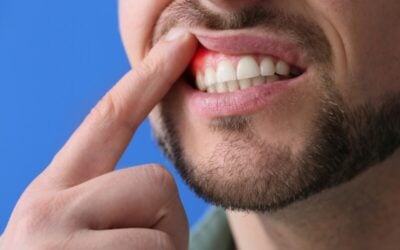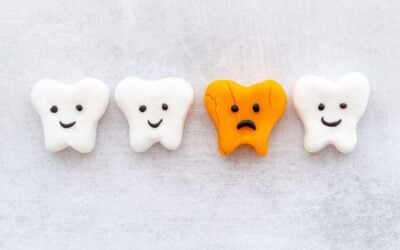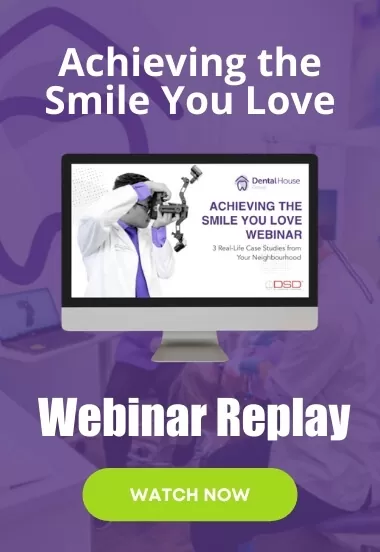How Ethical Is The Permanent Medical And Dental Divide?
How Ethical Is The Permanent Medical And Dental Divide?

Undoubtedly, that this divide even exists is in itself less than principled.
That it’s never been shown to be nothing short of permanent surely brings questions of morality to this unstable ethics table.
Despite the conflation, ethics and morality are two different things. What repeatedly ties them together is the law.
And (shamefully) since there’s no law against this longstanding and illogical fissure between medicine and dentistry, it does indeed deem the law an ass. (As well as an idiot and a bachelor, according to Dickens – about as outmoded a thinking as you can get which is clearly the favoured motif when it comes to fraternity between doctors and dentists.)
It’s the Wars of the Roses, yet to be won. The contemporary Civil Wars with the definition of civility clearly in dispute. Where mouth and body are independent rather than interdependent, adding to the confusion of already confused thinking.
It’s what prompts consideration from the dual perspectives of ethics and morality – in the hope of stumbling across palatable and exemplary reasoning.
Because certainly there hasn’t been any for the past three hundred years: marking the start of its naivety, before it steeped and evolved into bitter stupidity.
It’s a chasm that’s completely ego-based and wholly driven by people in power, harbouring conflicts of interest and benumbing citizens to all the overt venality thanks to the government sanctioned corruption of political donations.
They’re the cheap and convenient aversion therapy that massively interferes with the moral compasses of the masses. These personal sets of beliefs that make the individual core of who we are helps define, express and enforce the ethics that express the culture of society in which we live.
It’s complex of course. Yet the singular thing that life absolutely demands, is adaptation and evolution. From a human point of view, that encompasses the flexing and morphing of ethics and morals.
Curiously, weirdly, and almost inexplicably (although – truly – it isn’t) whether it’s political, sexual, financial, verbal, psychological, physical, emotional or any one of another six or seven categories, brutality in some form will always remain.
Whatever sophistication we claim to have obtained as modern Homo sapiens is always yin-yang equalled with some version of flagrant ignorance.
No longer do we use public whipping posts. Apparently the media – social and otherwise – is much less pitiless and exceedingly more humane although nobody ever tells you exactly how that’s measured.
It’s true that we no longer guillotine. But that alone does not explain or excuse the multitudinous constructs and projections of violence. In a world that asserts its superior advances, it simultaneously and petulantly refuses to even entertain the idea of spiritual evolution on a remotely comparable scale of progress and betterment.
Whether we like it or not, we are the forever continuation of our Palaeolithic and Neolithic beginnings. No matter the bacchanalia or calendar marginalia, we remain prehistoric in our altruism, and ancient warriors in the overt and covert multiplicities of divisiveness.
In the collective and the singular, humans are ubiquitously fierce.
Look at any warring country, any boardroom take-over, any shock divorce. All easy to map, and impossible to analyse. It reaches right across the planet and into the entirety of the existence of humankind.
We no longer hurl rocks at the less-than, and the vulnerable – we just take away affordable dental care.
Globally.
With the exception of smart dental care nations like Korea, Japan, Mexico, Sweden, Finland, Denmark and Germany, the punishment of untreated cavities, overcrowded teeth and gum disease is our 21st century Skevington’s Daughter; our modern day Heretic’s Fork; a cruel and unnecessary Judas Cradle.
Somewhere in that is proof that violence has changed over the last 250 years because ethics always makes morality look good.

We’re still comfortable inflicting needless discomfort on others. We still painstakingly justify pain and suffering. We create and accept the rubbery parameters of dumb-luck privilege, and let science railroad philosophical discourse and moral responsibility.
All in all we allow a world that lives by the dogma, “Compu’er says no.” We applaud ourselves on what we do, and what we change today impacting all of our tomorrows whilst nominating the first of those tomorrows as 2035.
Torture will never be confined to history. It simply alternates uniforms, long white coats and corporate wear.
Vehemence will always duck and weave to emerge victorious somewhere. Whether it be in war, social or scientific experimentation, or the violence that so easily slips and slides coldblooded, across platforms that could once claim to be virtual.
We used to transpose forgiveness with permission and demand with request.
Now there is little discernable pattern under this motto of mayhem, except for affection for the irrational, and the specious sounding out of the ludicrous and unsound.
Such is the framework of politics, and its insistence that there is no distinct relationship between medical and dental. Even with the increasing empirical evidence of chronic disease and premature death being attributable to poor oral health, the idiocy of this divide remains; as entrenched as discrimination, and the utter impossibility of equal rights and equal pay.
It’s known and accepted that incidences of Alzheimer’s, coronary, kidney and digestive diseases, and even obesity and arthritis are the result of pathogens entering the bloodstream via unhealthy teeth and gums – and still, there is no adequate system of dental care to support these findings.
Simply, it’s simple stupidity.
According to German pastor and theologian Dietrich Bonheoffer (1906-1945) stupid is more dangerous than evil.
His theory proposes that we can protest the malicious and malevolent: against idiocy we are defenceless because of its intrinsic lack of reason. Without reason, there can be no respectful boundaries, evidence, or objectivity – making it impossible to question or debate because it is purely personal expression with no view that can be persuaded by logic or example.
How ethical then, it is to designate health an emotional issue? It’s reprehensible. A consistent collaboration of incongruence: medically, cognitively, collectively and individually.
We just keep letting the computer say no.
It’s a lying that keeps us dying as needlessly, cruelly and stupidly as if people were still hanged, drawn and quartered because there’s more than a decade of research that identifies oral-systemic links.
And within this permanent divide of doctors, is the poor integration of dental and mainstream medical studies.
This historical and hysterical separation creates and maintains siloed approaches and processes in research, education and practice.
It’s a division of ultimate deprivation: of findings, of benefits, and the overall health and well being of patients. It impedes the skills of practitioners and the efficacy of policy makers. These are the omissions that account for nothing, and amount to little more than loss – the loss of risk assessment, early diagnosis and intervention, and a myriad of lost opportunities in the prevention of disease.
The crowning glory, really, of this political and professional pettiness is the ever-increasing cost of research, and the perpetual contribution to highly inefficient and fragmented healthcare systems worldwide.
It’s a divide that ultimately proves just three things: that the law is ass; that pride and profit predominate people; and that idiocy is impenetrable and impervious to the ethics of the Hippocratic Oath.
Good for government; bad for people. Making it not only unethical but ironic; hypocritical rather than Hippocratic. A symbolic swearing in that’s become a profanity with its callous and calculated odds.
Blocking access to affordable dental care is a crime against humanity. To not recognise that, suggests something’s affecting brain function.
Most likely, it’s gum disease.
DISCLAIMER:
The content has been made available for informational and educational purposes only. Melton Dental House does not make any representation or warranties with respect to the accuracy, applicability, fitness, or completeness of the content.
The content is not intended to be a substitute for professional personal diagnosis or treatment. Always seek the advice of your dentist or another qualified health provider with any questions you may have regarding a dental or medical condition. Never disregard professional advice or delay seeking it because of something you have read or seen on the Site.
Services we mentioned:
Related Articles
A Common Diabetes Drug For Treating Gum Disease
The diabetes drug Metformin prevented substantial bone-loss in live mice with induced periodontal disease. The first clinical trial was…
Dentistry’s Fresh Plan: CRISPR Programmable Proteins
Aoccdrnig to rscheearch at Cmabrigde Uinervtisy, the oredr of ltteers in a wrod ins’t iprmoetnt; waht mttaers is taht the frist and lsat ltteers are in the rghit pclae. The rset can dno’t mtetar - you can sitll raed tehm wouthit iusse. Tihs is bcuseae the barin...
Teeth Telling Tales Of Emotion: How Dental Issues Happen In The Healthy
An animal physiotherapist once told me that dogs hold trauma in their jaw and gums. To massage them was soothing and therapeutic. Though their processes of recall and expression are seemingly different to ours, the metaphysics of fear and emotional distress are...
Does Gum Disease Affect Your Eyesight?
Gum disease affects everything, it seems. More than the influence it has on the aesthetics of a smile, the functionality of teeth and the lowering of self-confidence, gingivitis and periodontal disease have been linked to a number of chronic diseases. Ongoing studies...















